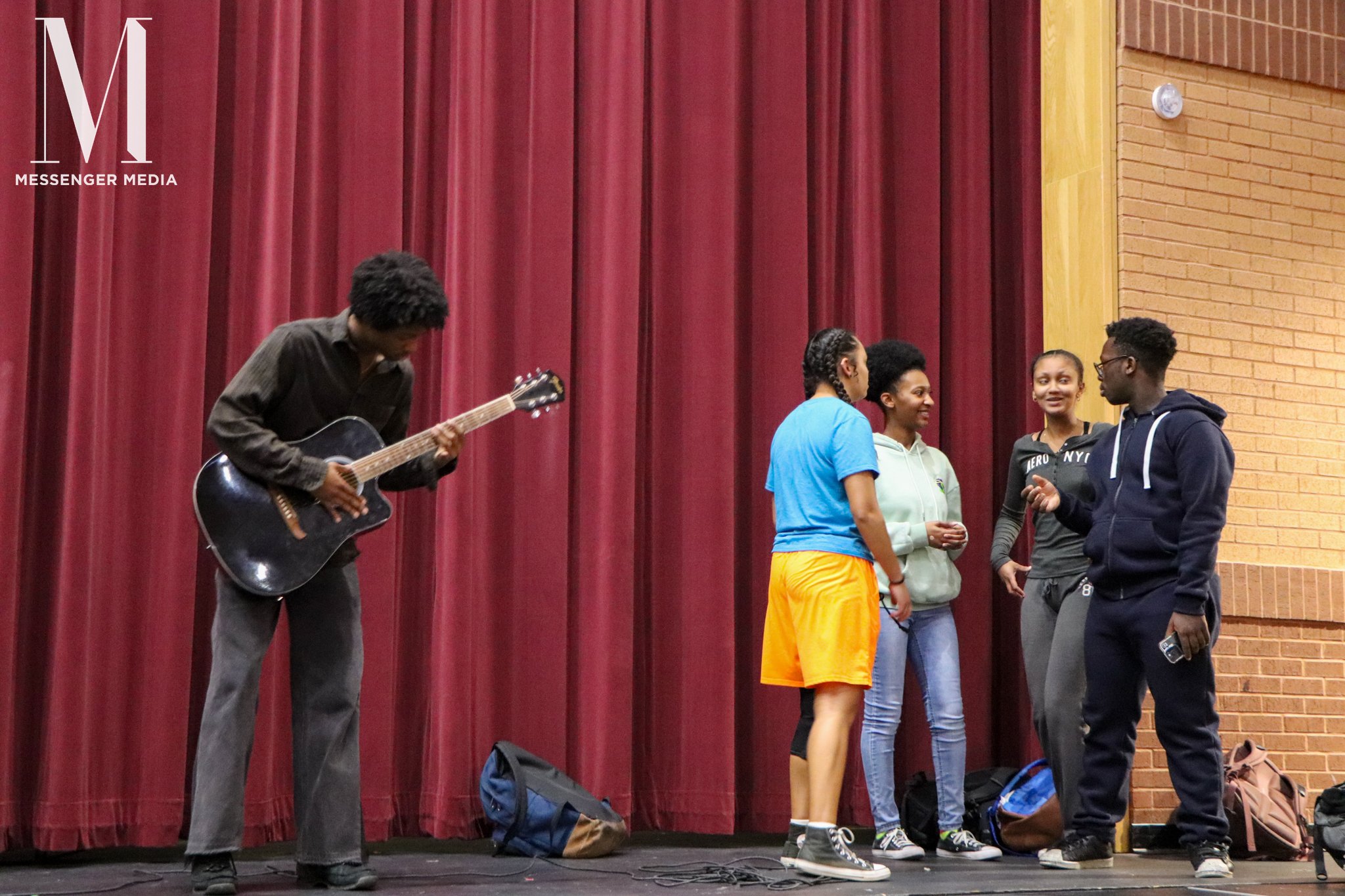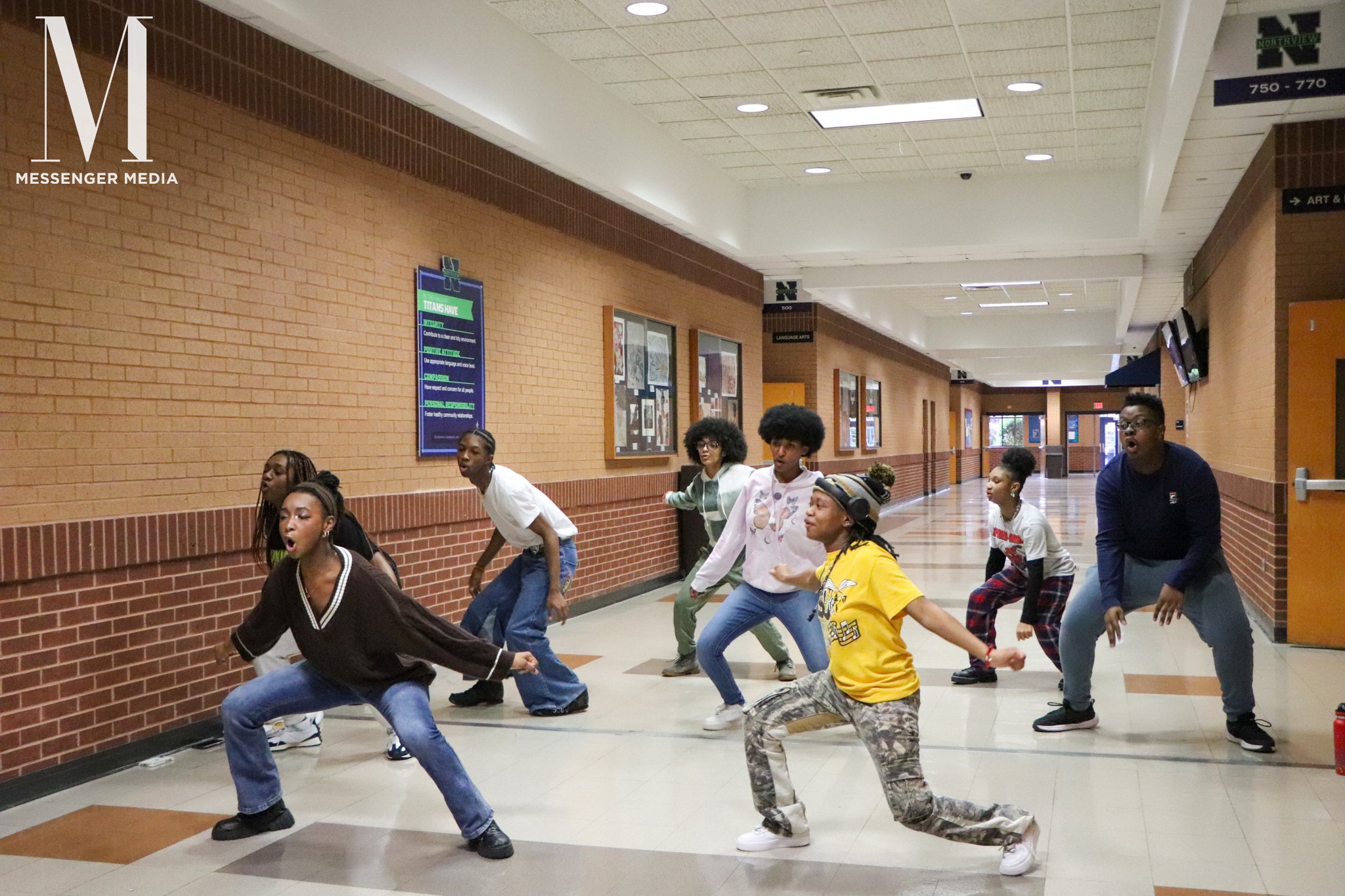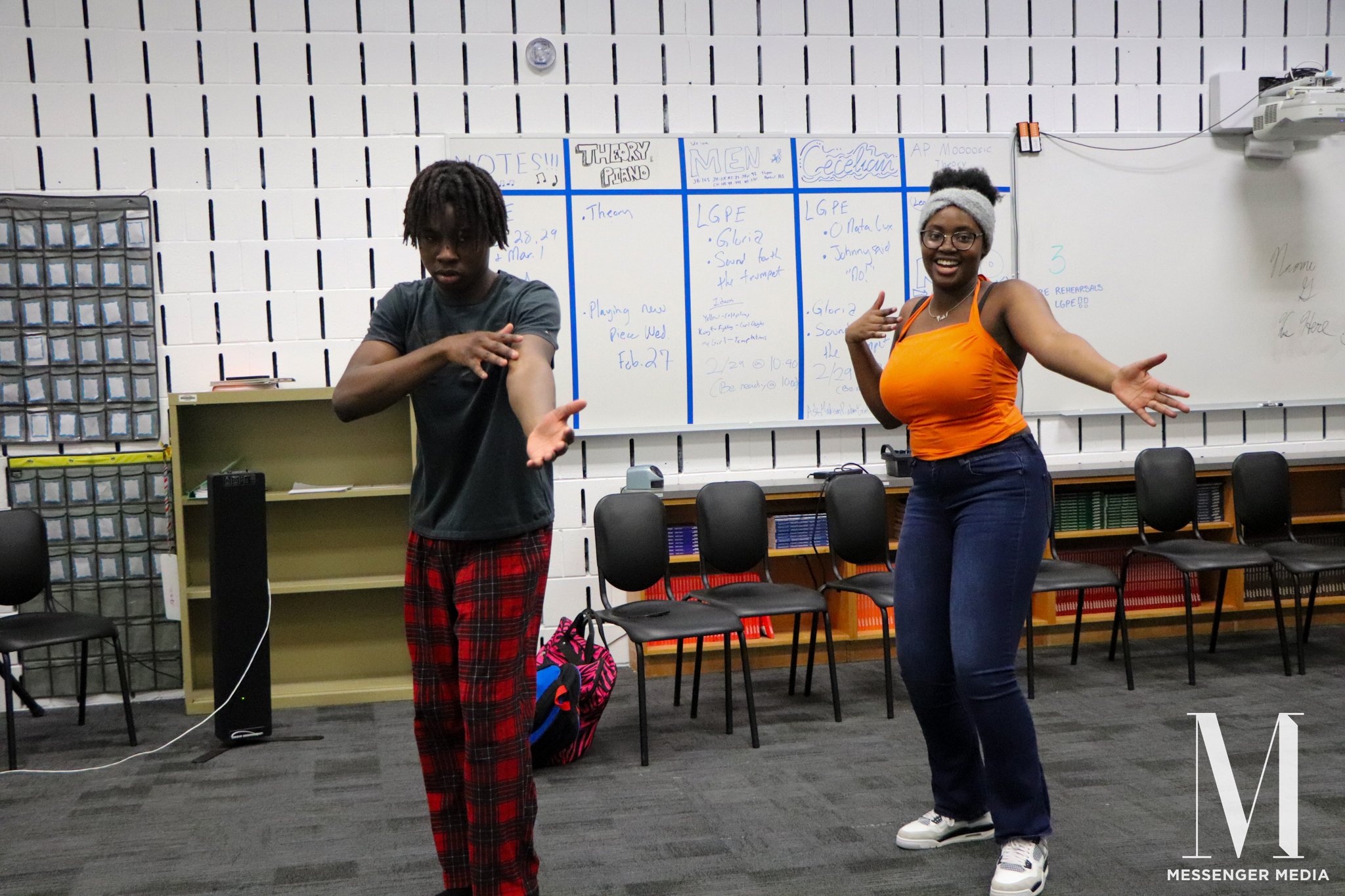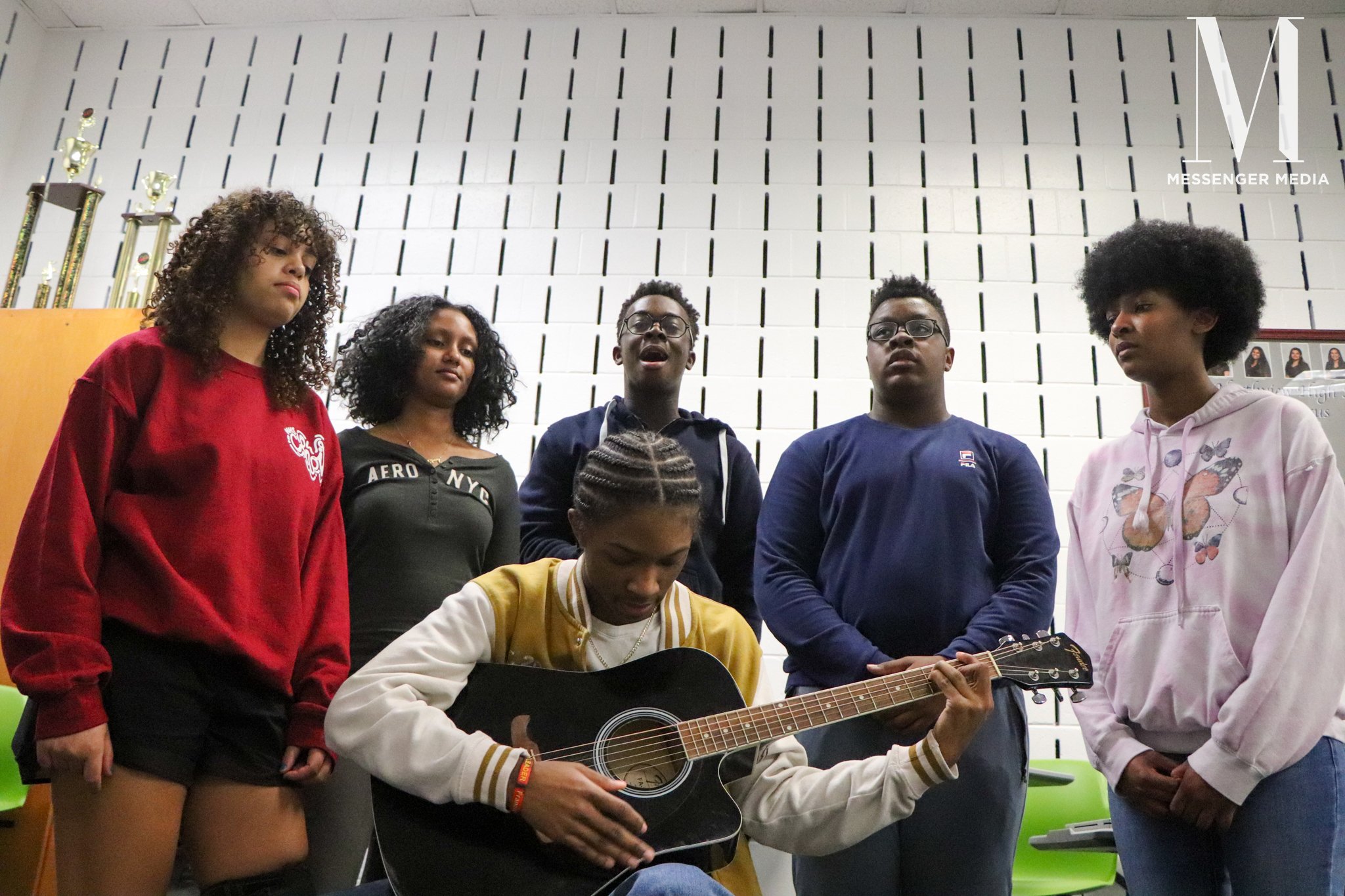Shining a spotlight on Black History
Learn about the behind the scenes of Northview’s annual Black History ShowPhotos by Aryan Shetty, Photographer
Natalie Damer-Salas, Opinions Editor & Shadi Karimifard, Staff Writer
Every February, Northview’s auditorium fills to the brim during lunch to watch the Black History Club’s performance of their annual Black History Show. The Black History Show’s purpose is to celebrate the Black population at Northview and teach Northview students about Black history. To create such a popular performance, the Black History Club began preparing in August, starting the process by brainstorming topics, writing a script, practicing step dance, casting, and running many rehearsals.
“It's hectic through February, but it's really fun because it's [our] time to showcase [our] culture or whatever message we want to get out that year,” Black History Club President Lola Ajibade said. “Especially if you're in charge of writing the play, you get to speak out and people actually want to listen because it's not a PowerPoint presentation.”
Each year, the Black History Show is based around a different theme. Contrasting the previous years’ themes which focused on the oppression of the Black community from external communities, this year’s theme is called ‘BLACK’ and focuses on the dynamics that occur within the Black community.
“A lot of times when it comes to these plays, or when it comes to the whole of Black problems, it is about racism, but we don’t talk about its textures,” play director Ibrah Thornton said. “Like the difference between skin color; how lightness of one’s skin defines supremacy within our community. It is an ‘us versus us’ thing. We are really highlighting that to speak to ourselves rather than anyone else.”
The play is usually about 30 to 40 minutes long and has previously had multiple acts including brief history, songs, and step dances to convey this year’s message. As director, Thornton leads warm-ups, corrects and tweaks the delivery of lines, and ensures that the actors bring the energy necessary for the show.
Besides directing the acting, Thornton also choreographs the step dance. Stepping is a form of percussive dance in African-American culture where the dancers utilize their body parts as instruments to create sound through clapping and stomping. Thornton has done step since middle school and began choreographing step dances four years ago. It has been a prominent part of her extracurriculars since.
“My first middle school was a very Black, Hispanic, and POC-oriented school. I wanted to find that in Northview because I knew that was a very big shift from my first middle school,” Thornton said. “Once I found Black History Club, step was the main thing that connected me to the club. After building that community in middle school, finding it in high school, it felt like home and I want to expand that.”
Students completely create and run the play. This has allowed students to explore their passions on the stage through the talking, singing, and dancing roles as well as off the stage through writing, directing, lighting, and other roles to complete the performance.
“I want to do screenwriting and directing for a living so the role of playwright for the Black history play meant a lot to me instantly because I love Black culture and directing,” Sewassew Kirubel said. “Combining the two things I’m passionate about was the perfect opportunity.”
In addition to giving students opportunities to pursue their interests, The Black History Show has also given the students a platform to share their ideas with the entire school through a unique medium.
“As a club, we don't have as many opportunities to get our voices heard because there are so many clubs,” Ajibade said. “So, I feel the Black History Show allows us to actually talk with the school community in a different way than any other club. We get to actually talk to the entire student body about whatever issue, which I feel is really important.”
While Northview High School is composed of 55.8% Asian students, Black students only make up 12.4% of the student body - making the celebration of Black culture particularly relevant.
“It's important for me and the student body as a whole, and the community as a whole, to see Black history presented in a different way,” club sponsor, Jasmine Jones said. “But it's also really good for Black students to feel supported to be able to talk about issues that affect them, and feel like they can actually do that in a safe space.”
Looking forward, the students in the show are practicing nearly every day after school from 3:30 - 5:00 p.m. preparing for their performance on February 23. Northview administration is working to create a similar schedule for the show day as last year, creating two long lunches to allow all students and teachers to see the show.
“I hope when teachers and students have the opportunity to sign up to see the show, they will choose to support their peers and their students and be open to learning something new about a different culture and supporting other people,” Jones said.
*Statistics taken from the U.S. News and World Report based on data from the 2021-2022 school year





